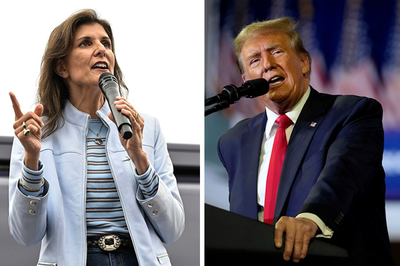
(NewsNation) — March 5 is Super Tuesday, the primary election day with the greatest number of delegates at stake in the 2024 presidential election.
But what makes it so super? First off, more than a third of all delegates are available to Super Tuesday winners.
Additionally, it could solidify the general election rematch between President Joe Biden and former President Donald Trump.
On the GOP side, this could be former South Carolina Gov. Nikki Haley’s last stand against Trump, and the same goes for Minnesota Democratic Rep. Dean Phillips, who is making a long-shot bid to topple Biden.
Here are four things to know ahead of Super Tuesday:
How many states vote on Super Tuesday?
Republicans in 15 states and one territory will cast their ballots. According to Decision Desk HQ, those include Alabama, Alaska, American Samoa (caucus), Arkansas, California, Colorado, Maine, Massachusetts, Minnesota, North Carolina, Oklahoma, Tennessee, Texas, Utah, Vermont and Virginia.
As for the Democrats, all but one of those states, plus the territory of American Samoa, will hold their primaries March 5. Alaska’s Democratic contest is scheduled for April. In addition, Democrats in Iowa will also cast their ballots on Super Tuesday.
How many delegates are up for grabs?
A total of 874 delegates are at stake in the GOP battle — more than a third of the party’s 2,429 available delegates.
In the Republican primary, each state awards its delegates differently based on its party's rules: a few distribute them proportionally based on the vote tallies, others give all their delegates to the leading candidate, and in some states, either could happen. For example, California (169 delegates) and Texas (162 delegates), the two states with the most delegates on Super Tuesday, both become winner-take-all if the leading candidate secures more than 50% of the vote.
More than a third of the Democratic delegates are also decided in the Super Tuesday elections: 1,420 of all 3,945 delegates. Democrats follow a uniform set of rules to award their delegates, allocating them proportionally in all primaries and caucuses.
The Democrats’ winning candidate must secure 1,968 delegates. Biden could reach that total as soon as March 19.
Can Trump secure the nomination on Super Tuesday?
In the GOP primary, a candidate needs 1,215 delegates to become the party's nominee. According to Decision Desk HQ, as of Tuesday, Trump is in the lead with 109 delegates. Haley trails significantly with 20 delegates.
Neither candidate would be able to reach 1,215 delegates on Super Tuesday. The Trump campaign projects the former president could earn enough delegates to become the party's presumptive nominee as soon as March 12. That's when Republicans in Georgia, Hawaii, Mississippi and Washington head to the polls.
To reach the winning threshold by that time, Trump will need to continue winning the vast majority of delegates in the upcoming primaries.
Can Haley slow Trump's momentum?
Haley's campaign has said she is moving "full speed ahead" to Super Tuesday, with campaign events scheduled all over the country leading up to the March 5 elections. She has vowed to stay in the race, saying she has "a duty to give [voters] that choice," even though she has yet to win a single state.
"I know 40% is not 50%," Haley told South Carolina supporters on Feb. 24. "But I also know 40% is not some tiny group."
If Haley struggles to win any states or secure a significant number of delegates on Super Tuesday, her path to the nomination becomes increasingly unclear. But the party’s candidate is not officially chosen until the Republican National Convention in July.
GOP voters in a total of 32 states and territories are voting in primaries and caucuses in March.